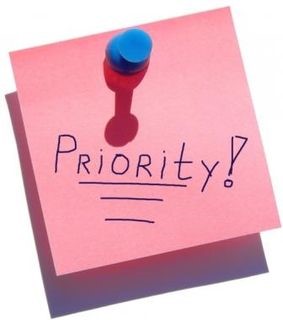If you’re looking to rebuild your credit, the two most important things to keep in mind are prioritizing and paying on time. Paying a bill that is 60 days past due can turn a credit score from good to bad…even bad to worse. For instance, a very late payment could shave off as much as 100 points from your credit score. You’re better off paying the minimum amount due on time than paying more than the minimum due late. Here are some other important tips:
Know Your Priorities
First, prioritizing means satisfying needs instead of wants. That means paying your electric bill before purchasing that new television! Ranking which bills are the most and least important is the next step.
- Your first priority should be to pay your rent or mortgage. Missing home payments may result in the loss of your home. Late payments on your mortgage can also significantly hurt your credit score and your chances to refinance or buy a new home in the future.
- Food expenses come second, especially if you have a family to support. Car payments should be marked just below food if you rely on your car to get to work.
- Credit cards should be next on your list … if only to pay the minimum amount due … on time! Credit card companies report to the 3 major credit bureaus, so they can improve or hurt your credit score. So if you have limited funds, simply pay the minimum – but pay it on time – until you have more funds available to pay down your debt.
- Utilities are important and should be paid, but they do not impact your credit score unless they become collection accounts. It is important to work out payment plans if you are unable to meet your due dates so that you maintain your utilities … but paying them modestly late will not impact your credit score.
The Importance of Secured Cards
A secured credit card is one that requires you to deposit a certain amount of funds in order to have a line of credit extended to you. The credit line varies from bank to bank, but account holders are generally required to deposit anywhere from $300 to $500 to receive a similar credit line. Secured cards are a good way to rebuild credit because credit card companies report secured credit cards to the 3 major credit bureaus, unlike prepaid cards which do not report to any credit bureaus. Your goal is to have your good payment history reported to the 3 major credit bureaus to boost your credit score.
When using a secured card, you should make a few charges each month and pay off the balance quickly. Payment history is important when rebuilding your credit, and there should be no large balances that are carried over for months on end. You should always strive to make a timely payment, even if it is the minimum amount owed.
There are certain things to consider when choosing a secured card, such as interest rates, annual fees and strings attached in the form of monthly insurance. With that being said, secured credit cards carry enough responsibility for you to eventually transition to an unsecured card. You’ll know when your credit activity is making a positive difference when you begin receiving unsecured card offers in the mail!


















